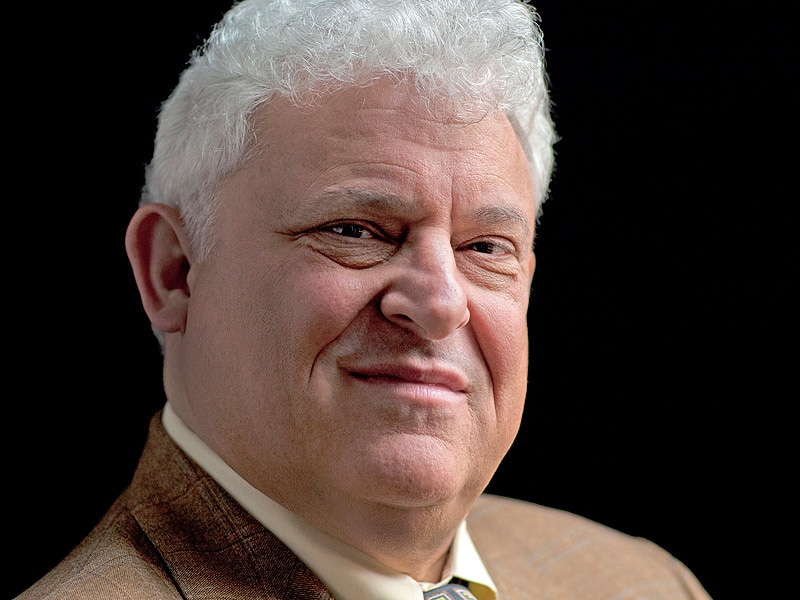
This transcript has been edited for clarity.
Hi. I'm Art Caplan, and I'm the director of medical ethics at NYU's Grossman School of Medicine.
This morning, I was having breakfast with my wife, who is a retired hospital administrator. I mentioned to her that I was going to be testifying on behalf of legislation in the state of Connecticut, where we live, that would prohibit nonconsensual pelvic examinations for teaching purposes — probably for research purposes as well, but mainly for teaching. She was flabbergasted. She asked, "Is that allowed? Do people do it?"
It's not the first time this topic has come up, even here, but unfortunately, the practice still does go on. Seven states have passed laws, including California, that prohibit any type of intimate exam without the prior express permission of the woman, or for that matter, the man.
We do need to teach people how to do pelvic exams and these regular checkups. This does happen sometimes on anesthetized patients, and it still happens sometimes on people who are not really told what's going on. In my view, it has to stop.
Connecticut and Massachusetts now both have laws [under consideration] saying this ought to be illegal and that you cannot conduct an exam without the express permission of the party involved. It obviously makes good legal and ethical sense.
If we want patients to trust us and if we want to make sure that they respect what doctors and scientists have to say and what they do, we absolutely have to make sure that we don't do something to them that they don't fully understand, in touching their body or examining their body, or worse, taking advantage of the fact that they're under anesthesia and doing something there for training purposes without telling them. It's a basic moral rule to secure trust, that if you're going to touch someone's body, you have their permission.
It's long been a legal standard that if you're going to touch someone's body for a medical purpose, you still need their permission unless you are in some sort of emergency situation. In ordinary medical care, it's battery or assault if you are touching someone in a way that you don't have their permission.
Think about all the doctors who've been marched off to jail and prison or lost their license because of exams that they were doing on athletes without their consent. Many of them were appropriately punished. We don't need this practice. We don't want this practice.
In my own experience, when people are asked whether an exam can be performed to teach students, the overwhelming majority of them say that, yes, they want to help. They like to let the next generation learn if the permission is requested in a way that makes the person feel like they're making a gift, making a real contribution, helping young people, helping the medicine that their daughters or sons will have available to them in future years. I think they'll come around and I think they'll say yes.
In any event, it's not a practice that ought to be tolerated. I hope that the Connecticut and Massachusetts bills pass. I hope that those who are opposing them, some of whom are coming out of medicine, realize it's just a fundamental medical mistake in terms of the ethics of the profession. It's not the road to trust. It's not the road to respect for patients — primarily women, but all patients.
We fought long and hard to get the right to have permission for what's done to you when doctors approach you and offer their care. And understanding that doctors need to learn and train, the way to do that is to work with the patient as a partner, not to do something stealthy to the patient as an object.
I'm Art Caplan at the Division of Medical Ethics at NYU Grossman School of Medicine. Thanks for watching.
Arthur L. Caplan, PhD, is director of the Division of Medical Ethics at New York University Langone Medical Center and School of Medicine. He is the author or editor of 35 books and 750 peer-reviewed articles as well as a frequent commentator in the media on bioethical issues.
Follow Medscape on Facebook, Twitter, Instagram, and YouTube
"occur" - Google News
February 23, 2022 at 10:05PM
https://ift.tt/eXMwBV1
Unconsented Pelvic Exams Still Occur: Why Don't They Stop? - Medscape
"occur" - Google News
https://ift.tt/4r2aQnU
https://ift.tt/eEyFr4l
Bagikan Berita Ini















0 Response to "Unconsented Pelvic Exams Still Occur: Why Don't They Stop? - Medscape"
Post a Comment